This post is a guest blog written by Preet Shah, Project Manager at Tewa.
I grew-up in Nepal. In a society where women did not chat about politics, because women were not part of any political agenda and it wasn’t our place to speak about what the country should be doing. It was an absolute bizarre concept for women to be involved in decision making.
Ridiculous right?
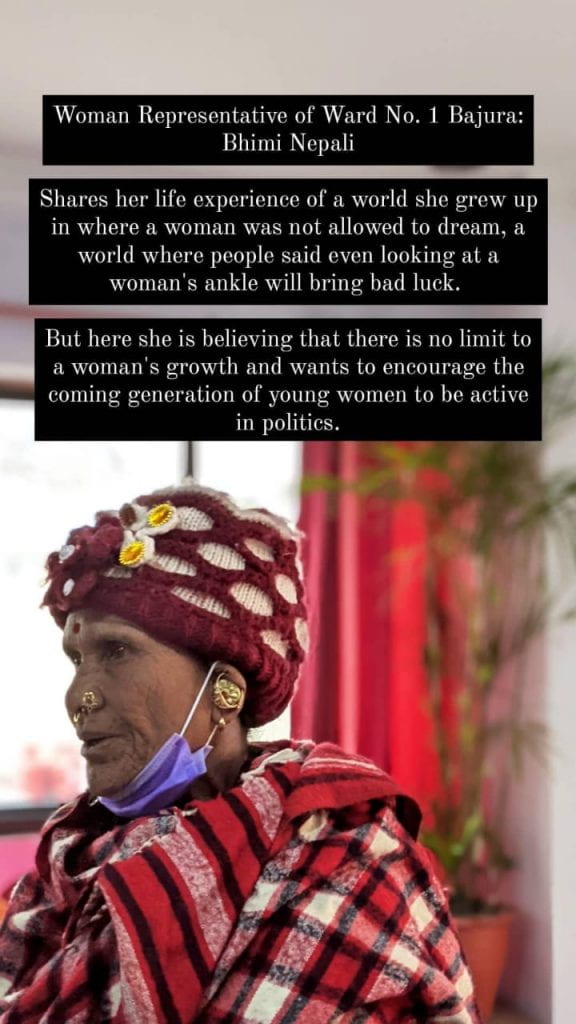
The struggle for women’s equality and political participation goes back more than a century, spanning the period of political instability and fight for democracy in Nepal. However, Nepali women’s engagement in social, economic, and political arenas have not been properly documented. Hence, when we look back in history we have minimal documentation of women’s participation even though there have been women who have fought against all odds and stood against society to demand for justice and the rights of women. Some were ostracized, some were jailed and many were silenced.
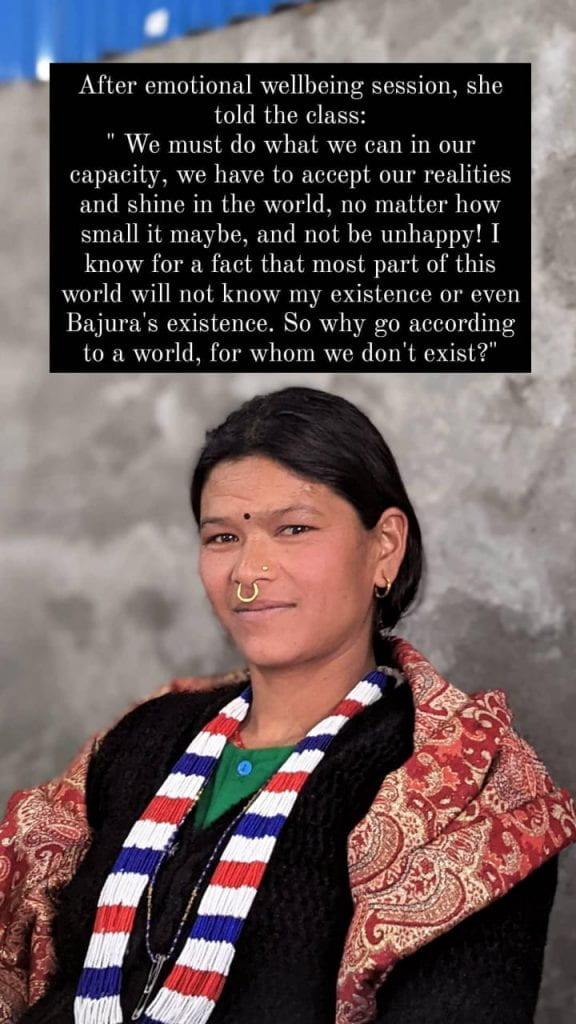
The patriarchal system of Nepal still persists but it has been challenged intensely over the years, with women’s movements taking political charge as well. The introduction of affirmative action in 2007 and the promulgation of the new constitution in 2015 guaranteed 33 per cent of all seats in the Constituent Assembly to women. After the end of the armed conflict that saw the country transition from a monarchy to a federal democratic republic, the country also embraced women’s roles in high political office, including a woman President – Bidhya Devi Bhandari.
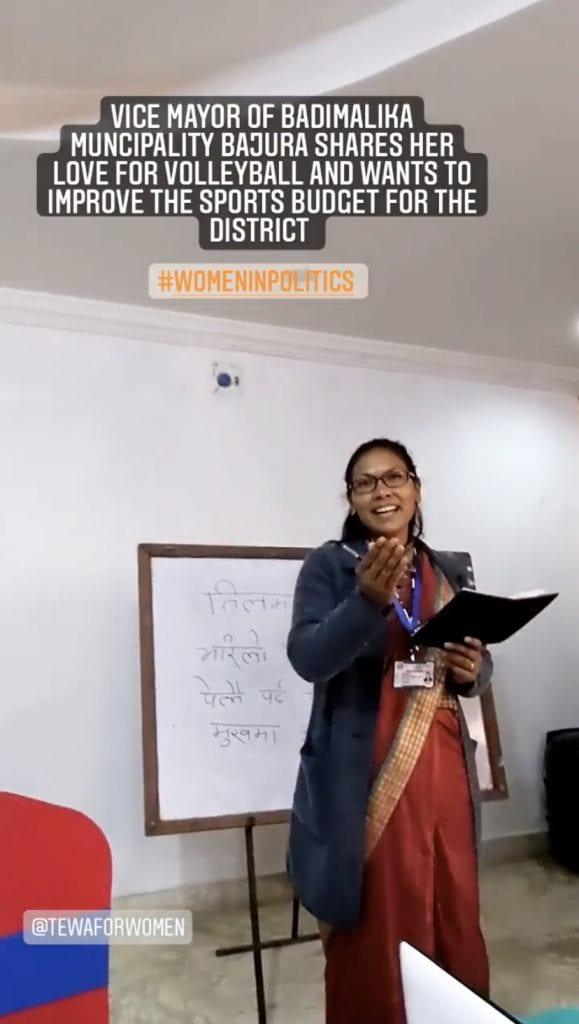
It is imperative to acknowledge progress in the country, but it is equally necessary to be aware of the capacity in which women are allowed to participate. I say allowed because most women in parliament are not given means to improve their political literacy, which hinders meaningful political participation.
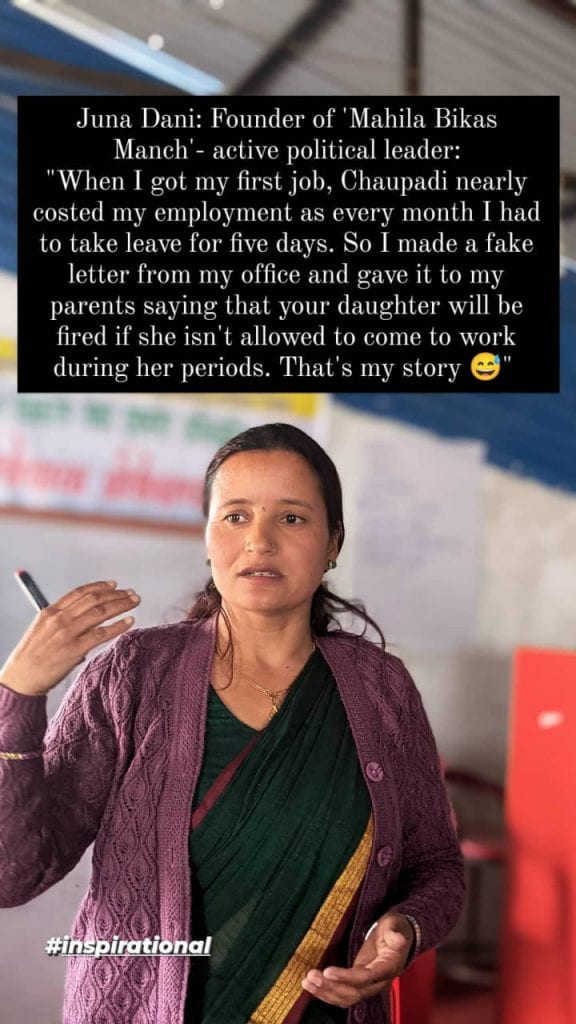
There is an obvious difference between women and men in politics. For example, in order to tackle the coronavirus pandemic, the Government of Nepal created a COVID-19 advisory committee consisting of seven men and no women. This lack of representation and nominating only men to make the most important decisions during a global crisis shows the stance the government takes when it comes to women’s leadership. Moreover, media hesitate to highlight women’s achievements as political leaders and women with power are often victims of character assassination. There needs to be a shift in harmful cultural and social norms that say women can participate but only within set boundaries that don’t challenge existing gender roles and responsibilities assigned to women and men.
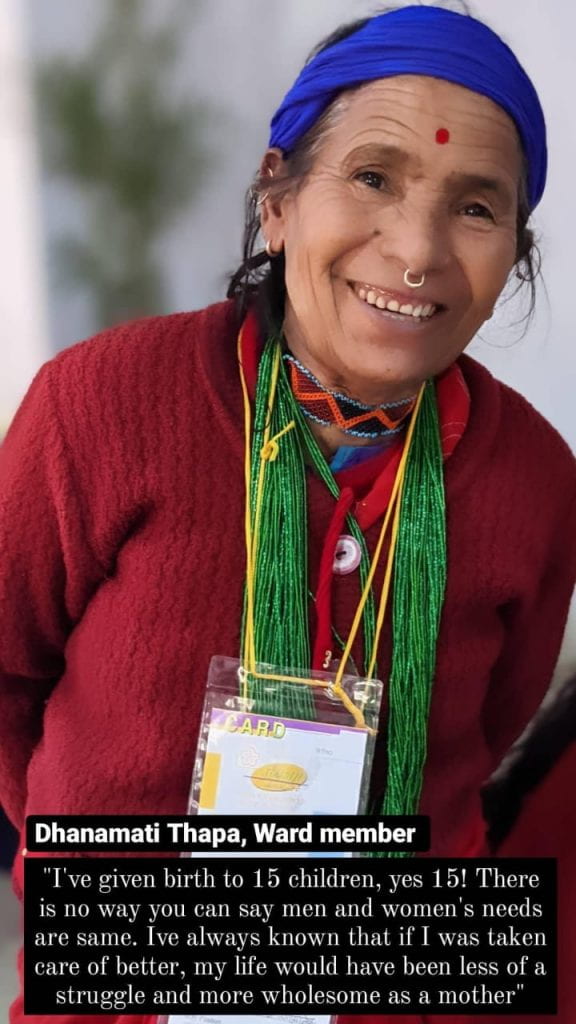
I work in an organization that tries to improve women’s grass-roots political participation in the Sudurpashchim (Far West) Province of Nepal. This province has some of the highest poverty and lowest literacy rates in the country. The lack of infrastructure and harsh weather conditions make it very hard to access.
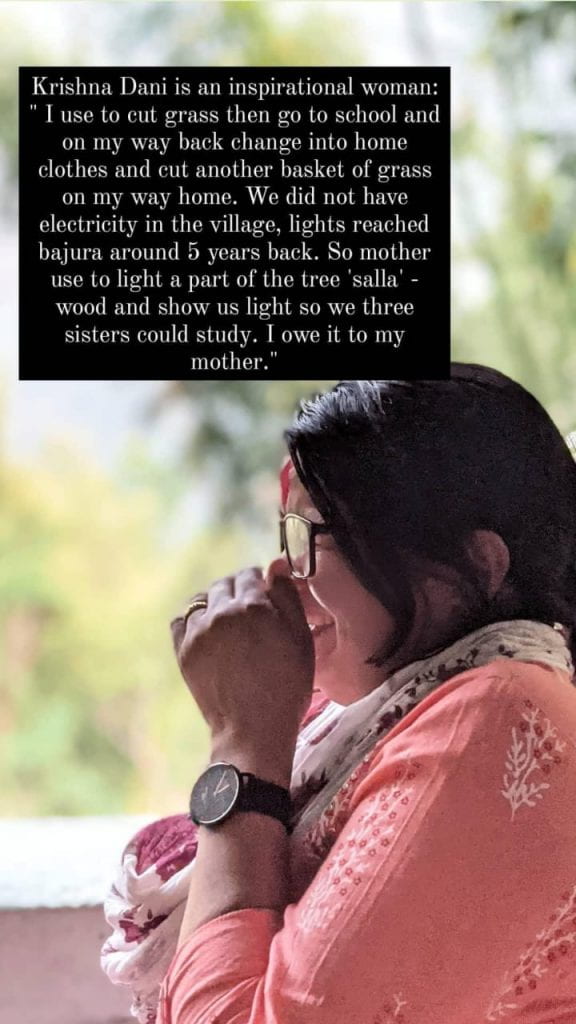
In Bajura, one of the most remote districts in Sudurpaschim, you will find the most determined and courageous women who are fighting against all odds to make their voices heard. The women in these photos are elected women and community leaders who are learning about leadership, entrepreneurship, and the important role of women in politics. Within the quota system, every ward requires women’s representation, including that of ‘Dalit women’, to reduce caste-based discrimination.
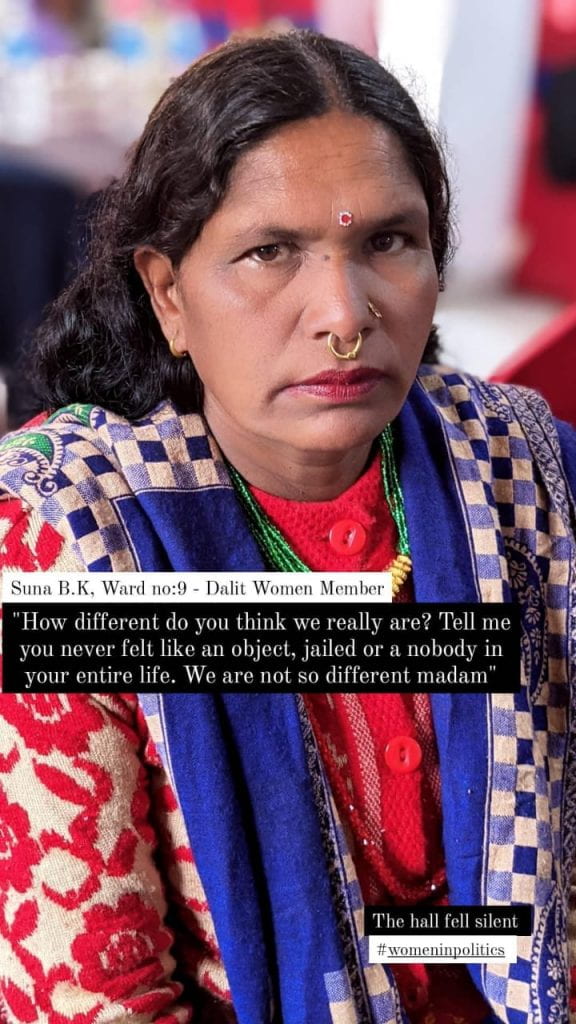
I am no veteran in this field, but with seven years of experience, I have come to understand that what we lack is teaching young women ‘leadership’. We don’t encourage women to take up space.

These pictures tell the story of women in Bajura participating and being present in their own lives; taking up space in society and knowing their own worth, all of which was previously unimaginable and unknown to them.
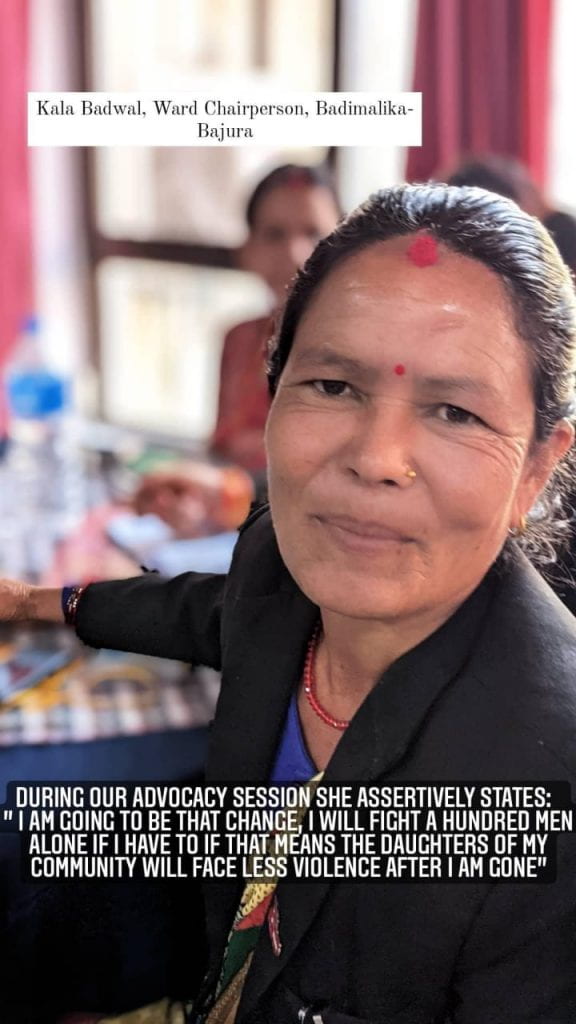
The women who are now in politics don’t have it easy, but most of them are courageous women who participate with dedication to do whatever they can to be heard.
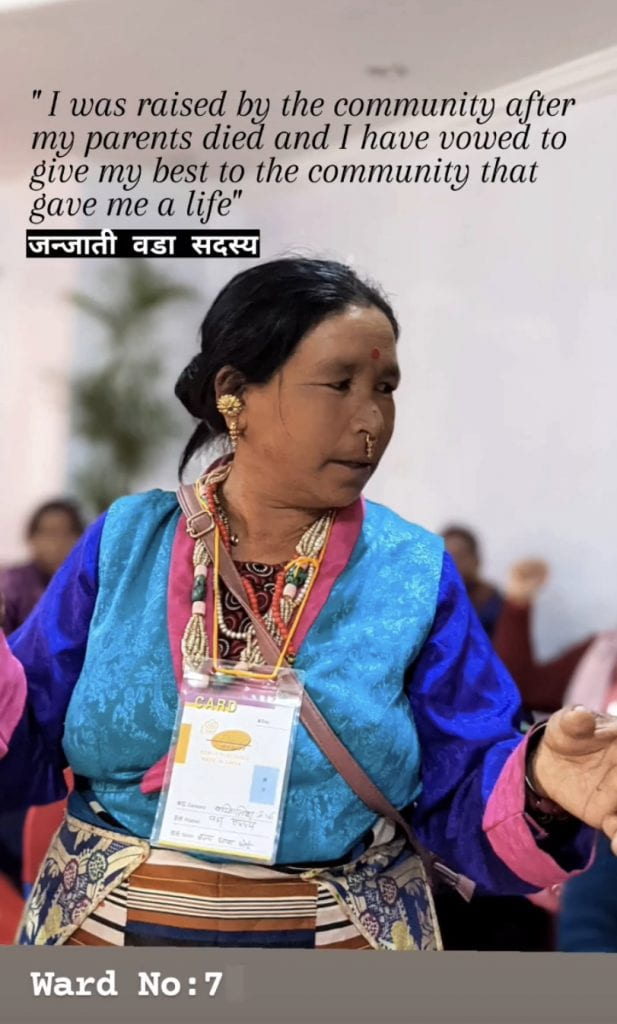
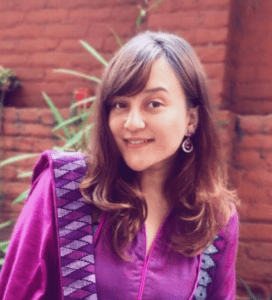
Preet Shah is a Project Manager for Tewa, an organization in Nepal supporting women to organize, raise their voices collectively and transform discriminatory policies, systems, norms, and practices through funding and capacity building. Preet is specifically working on enhancing capacity and improving livelihoods of elected women in Bajura, Sudurpaschim, Nepal. The project is supported by Womankind Worldwide. Local partners include FEDO (Feminist Dalit Organisation) and WHR (Women for Human Rights).


Fantastic article. I very much appreciate the photos of these women leaders accompanied by their own words.
[…] compatriots in rural villages. For instance, an idea Preet Shah from Kathmandu recently wrote a blog on Global Women’s Institute about the grassroots movement of women from rural far west Nepal for their political engagement and […]